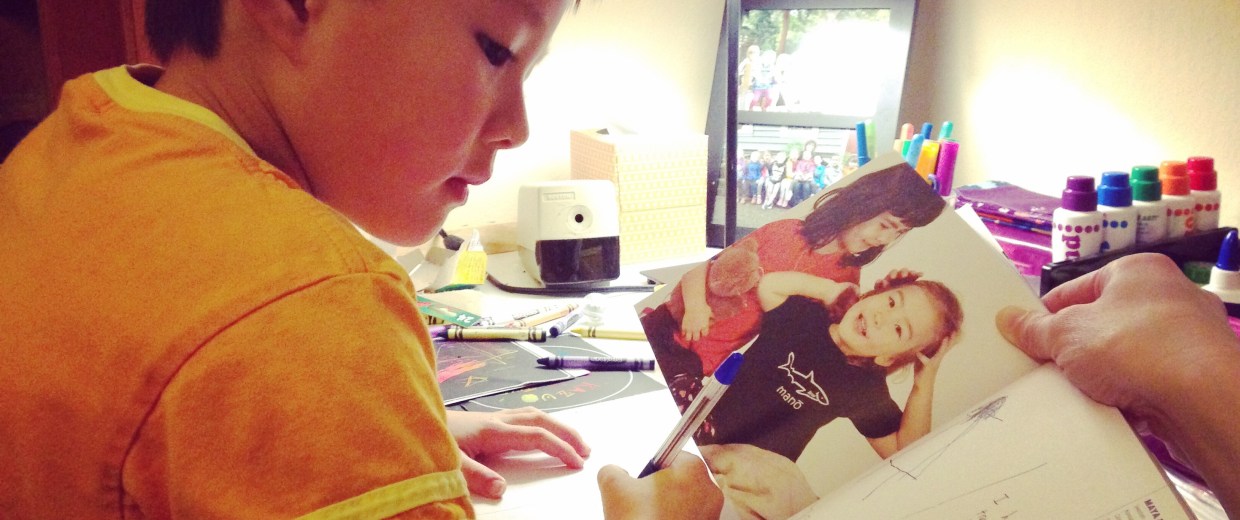Diving Into Race, Identity of Multiracial Families In ‘Raising Mixed Race’Posted in Articles, Asian Diaspora, Family/Parenting, Identity Development/Psychology, Interviews, Media Archive, United States on 2016-01-01 02:32Z by Steven |
Diving Into Race, Identity of Multiracial Families In ‘Raising Mixed Race’
NBC News
2015-12-31
 Sharon H. Chang’s son with a copy of Kip Fulbeck’s “Mixed: Portraits of Multiracial Kids.” Photograph Courtesy of Sharon H. Chang |
Scholar and activist Sharon H. Chang’s new book, “Raising Mixed Race: Multiracial Asian Children in a Post-Racial World,” published in December by Routledge, is generating excitement among reviewers and readers. More than a research study and more than a parenting guide, the book was awarded #1 New Release on Amazon before it had even begun shipping, and it sold out the first weekend it was released.
“‘Raising Mixed Race’ represents not only years of work on my end but a multitude of others’ lived racial realities; stories about and involving mixedness that are poignant, sharp, relevant and vital, and yet – remain mostly untold in America and around the world,” wrote Chang in her blog, Multiracial Asian Families, when announcing her book. “It is my sincere belief if we engage with ‘Raising Mixed Race,’ it can (will) challenge our thinking on mixedness to go deeper and contribute to moving society as a whole towards justice, healing and true transformation.”
With interviews with 68 parents of 75 young multiracial Asian children about race, racism and identity, Chang delves into history, critical mixed race studies, changing demographics, personal experiences, and includes advice for parents, families, teachers, and friends of multiracial Asian children.
NBC News spoke with Chang about her new book, her research on mixed race families, and why it’s important for parents and children to talk about identity.
Please tell us a little about your family background and how you came to this project. Why did you decide to write this book?
My father is a Taiwanese immigrant who came to America in the 1970’s, not long after the Immigration Act of 1965 lifted anti-Asian exclusionary restrictions which had been in place for decades. He met and married my white mother in that same decade which, of course, was also not long after the landmark civil rights Supreme Court case Loving v. Virginia which struck down laws prohibiting interracial marriage. My mother is white American of fairly recent Slovakian, German, and French Canadian descent — my Slovakian great grandmother escaped Eastern Europe when she was sixteen and migrated alone through Ellis Island. [The people in] her family were farmers and she became a factory worker in the U.S.
Today I am married to a mixed race man whose mother is a Japanese immigrant, came in her 20s as well, and whose father is white of longtime white American descent, many generations back, it is thought, to colonization…
Read the entire interview here.